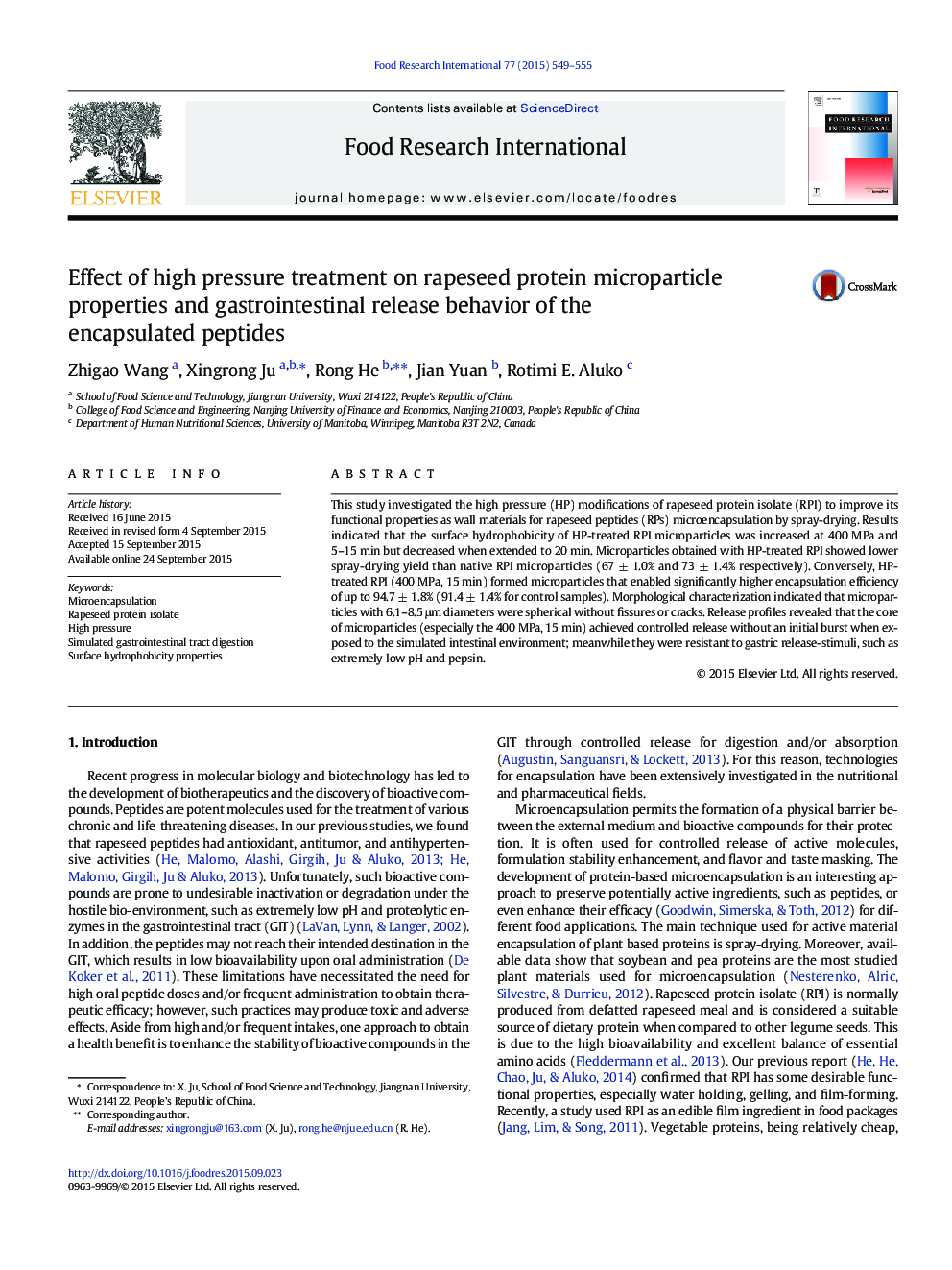| Article ID | Journal | Published Year | Pages | File Type |
|---|---|---|---|---|
| 4561376 | Food Research International | 2015 | 7 Pages |
•A significant increase in So was observed in RPI treated at 400 MPa and 15 min.•Modifications of RPI can be used to prepare peptides-loaded microparticles.•HP-treated RPI microparticles enabled significantly higher encapsulation efficiency.•RPI microparticles showed negligible loss of peptides in the gastric environment.
ABSTRACTThis study investigated the high pressure (HP) modifications of rapeseed protein isolate (RPI) to improve its functional properties as wall materials for rapeseed peptides (RPs) microencapsulation by spray-drying. Results indicated that the surface hydrophobicity of HP-treated RPI microparticles was increased at 400 MPa and 5–15 min but decreased when extended to 20 min. Microparticles obtained with HP-treated RPI showed lower spray-drying yield than native RPI microparticles (67 ± 1.0% and 73 ± 1.4% respectively). Conversely, HP-treated RPI (400 MPa, 15 min) formed microparticles that enabled significantly higher encapsulation efficiency of up to 94.7 ± 1.8% (91.4 ± 1.4% for control samples). Morphological characterization indicated that microparticles with 6.1–8.5 μm diameters were spherical without fissures or cracks. Release profiles revealed that the core of microparticles (especially the 400 MPa, 15 min) achieved controlled release without an initial burst when exposed to the simulated intestinal environment; meanwhile they were resistant to gastric release-stimuli, such as extremely low pH and pepsin.
